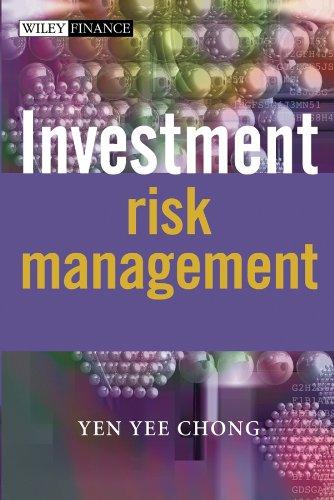Question
Our consolidated net income includes our Companys proportionate share of the net income or loss of our equity method investees. When we record our proportionate
Our consolidated net income includes our Companys proportionate share of the net income or loss of our equity method investees. When we record our proportionate share of net income, it increases equity income (loss)net in our consolidated statements of income and our carrying value in that investment. Conversely, when we record our proportionate share of a net loss, it decreases equity income (loss)net in our consolidated statements of income and our carrying value in that investment. The Companys proportionate share of the net income or loss of our equity method investees includes signicant operating and nonoperating items recorded by our equity method investees. These items can have a signicant impact on the amount of equity income (loss)net in our consolidated statements of income and our carrying value in those investments. The carrying values of our equity method investments are also impacted by our proportionate share of items impacting the equity investees AOCI. We eliminate from our nancial results all signicant intercompany transactions, including the intercompany portion of transactions with equity method investees. The Companys equity method investments include our ownership interests in Carb O' Nation Mexico, Carb O' Nation Greece and Carb O' Nation Australia As of December31, Year 4, we owned28 percent,23 percentand29 percent, respectively, of these companies outstanding shares. As ofDecember31, Year 4, our investment in our equity method investees in the aggregate exceeded our proportionate share of the net assets of these equity method investees by $1,671 million. This difference is not amortized. A summary of nancial information for our equity method investees in the aggregate is as follows (in millions):
Net sales to equity method investees, the majority of which are located outside the United States, were $10,063million, $9,178million,and $7,082 millionin Year 4,Year 3, andYear 2, respectively. Total payments, primarily marketing, made to equity method investees were $1,605 million, $1,807 million, and $1,587 millioninYear 4,Year 3,andYear 2, respectively. In addition, purchases of nished products from equity method investees were $381 million, $415million,and $392 millioninYear 4,Year 3,andYear 2, respectively. If valued at theDecember31, Year 4,quoted closing prices of shares actively traded on stock markets, the value of our equity method investments in publicly traded bottlers would have exceeded our carrying value by $4,899 million. Total net receivables due from equity method investees were $1,448 million and $1,308 millionas ofDecember31, Year 4andYear 3, respectively. The total amount of dividends received from equity method investees was $398 million, $401 million,and $393millionfor the years endedDecember31, Year 4,Year 3, andYear 2, respectively. Dividends received included a $35 millionspecial dividend from Carb O' Nation Greece during Year 2. We classied the receipt of the special dividend in cash ows from operating activities because our cumulative equity in earnings from Carb O' Nation Greece exceeded the cumulative distributions received; therefore, the dividends were deemed to be a return on our investment and not a return of our investment.
a.)Does Carb O' Nation have investments in aliated companies for which it accounts using the equity method? What is the percentage ownership of each investee?
Percentage ownership of Carb O'Nation Mexico:
Percentage ownership of Carb O'Nation Greece:
Percentage ownership of Carb O'Nation Australia:
b.) Carb O'Nation has influence over ____% of the assets, totaling $______ million, of its equity basis companies. The total amount of investment reported is $______ million. The fair value of these investments is $_______ million.
c.) Carb O'Nation's share (equity basis companies total $____ million.
Return on Investment: [Numerator]? / [Denominator]? = Result %
\begin{tabular}{|l|r|r|} \hline \multicolumn{1}{|c|}{ At December 31 } & \multicolumn{1}{c|}{ Year 4} & \multicolumn{1}{c|}{ Year 3 } \\ \hline Current assets & $14,566 & $17,306 \\ \hline Noncurrent assets & 36,072 & 36,384 \\ \hline \multicolumn{1}{|c|}{ Total assets } & $50,638 & $53,690 \\ \hline Current liabilities & $11,229 & $12,947 \\ \hline Noncurrent liabilities & 14,991 & 16,001 \\ \hline Total liabilities & $26,220 & $28,948 \\ \hline Equity attributable to shareowners of investees & $23,727 & $24,001 \\ \hline Equity attributable to noncontrolling interests & 690 & 741 \\ \hline \multicolumn{1}{|c|}{ Total equity } & $24,417 & $24,742 \\ \hline Company equity investment & $8,952 & $9,354 \\ \hline \end{tabular}Step by Step Solution
There are 3 Steps involved in it
Step: 1

Get Instant Access to Expert-Tailored Solutions
See step-by-step solutions with expert insights and AI powered tools for academic success
Step: 2

Step: 3

Ace Your Homework with AI
Get the answers you need in no time with our AI-driven, step-by-step assistance
Get Started


